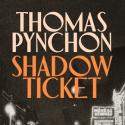Strictly speaking, an epistolary novel tells more than one story. You could say, for example, that Dracula is “about” a collection of letters and diary entries and in the same vein, that Claire-Louise Bennett’s new book is “about” a woman’s writing. Really, Big Kiss, Bye-Bye follows the end of a single relationship, but the framing – a journal of sorts, containing various letters and emails – allows Bennett to chart a woman’s shifting, lifelong attitudes to intimacy.
Bennett’s narrator begins by recalling her time with Xavier, a man whom she loved for many years. In fact, she still loves him, but he is much older than her and their relationship is no longer physical. Xavier refuses to accept this transition, and an email from him shoutily declares that he will not “exchange” his “LOVE for friendship.” Meanwhile, the narrator receives an unexpected letter from her secondary school English teacher. It carries with it the memory of others she’s loved in some way or another, and reminiscences occupy her as she packs up her flat and relocates to the country.
Each moment of intimacy, each man, is defined and remembered through little fragments: dried rose heads; a spilled coffee; a sink full of dishes. These ephemera organise the narrator’s thoughts and demonstrate the selectivity with which a person recalls the past. She resents Xavier for buying her flowers and failing to wash up, and yet she fails to apportion blame where it is more clearly due. In this, Bennett repurposes a distinctly gothic system of significant objects, images, and messages to tackle the fear that each of us is siloed in subjectivity.
The narrator is clearly anxious about this, and so her journal is all qualification: “My clothes might be damp. No, what am I saying, my clothes are quite untouched.” Bennett’s prose rests on a pivot, and is littered with maybes, mights, buts, and then agains. Her narrator’s mind is one in which a thought is always, swiftly, followed by a correction. She thinks around and around a particular detail in tightening circles, taking pleasure in the flashes of recognition that language ignites, and suffering anxiety at the manifold misunderstandings which form and tarnish her relationships with others. In places, the pleasures of language are Bennett’s primary subject:
"You begin to discover that having certain words in your mouth can make you feel the most extraordinary and exhilarating sensations. These sensations are occasioned by little flares going off inside of you, briefly illuminating that dark innermost space, plethoric and phantasmal, that you don’t know very much about but sometimes feel yourself sinking into. By the slow, cascading light of these fleet fire-bursts, set off by words, words spoken, strange and potent, you begin to see how vast and elaborate all that secluded darkness is. Is this scintillating shade you or was it there before you? You don’t know. Is it inside everyone? You don’t know that either."
Passages like this gesture towards something that may exist beyond the narrator’s narrow experience, and therefore offer respite from Big Kiss, Bye-Bye’s hypnotic specificity. They encourage us to place language at the centre of things, to understand it as the means, the locus, and the ends of all connection. It is easy to do so when you’re met with Bennett’s best writing. She feints, plays with cliché, and forces you to dig out your dictionary. She once again displays her ability to freshen the familiar, and her writing is full of texture. However, she also admits a few serious howlers (a fire is “intricate and fleshly and entrancing – it looked exactly like a magnificent vulva”) which I’m inclined to attribute to the narrator, rather than the author. The trouble with a novel about the limits of a single mind, told from the perspective of one person, is that you would really like to like the person in question.
The epistolary elements were perhaps dreamt up to overcome this difficulty (since we do in fact hear snippets from her interlocutors), but Big Kiss, Bye-Bye remains a little cramped. It is a conversation between the narrator and herself, which contains and picks over the remnants of conversations with others. By the end, we feel the pertinence of its epigraph (taken from Huysmans’ Là-Bas): “No, you cannot hear the thousand conversations with which my soul pesters yours.” The narrator defines herself in relation to the men she’s known, which for all its high-wire prose, makes Big Kiss, Bye-Bye feel rather old-fashioned. To me, this novel is an imperfect, but ultimately enjoyable reminder that we are each alone in a solitude that teems with chatter.















Add comment